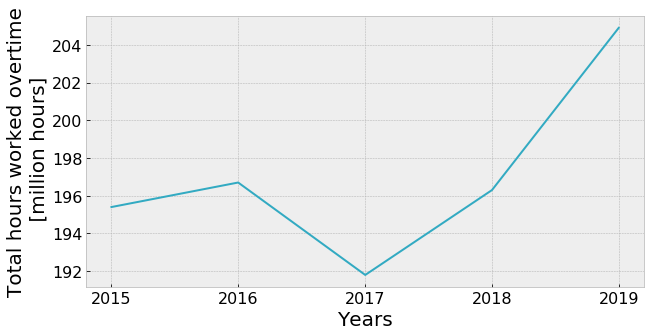🧠 Thoughts & Readings
Being busy has become some kind of weird status symbol in many modern societies (at least pre-COVID - would be interesting to see if this changed) [1]. When you are not busy it means, you are not essential for the company you work at, your skills and knowledge are not scarce enough to be constantly sought after.
‘Ugh, I’m So Busy’: A Status Symbol for Our Time
In his 1899 book The Theory of the Leisure Class, the economist and sociologist Thorstein Veblen wrote that “conspicuous abstention from labor … becomes the conventional mark of superior pecuniary achievement.” In other words, the richer one gets, the less one works and the more likely one is to try to show off one’s ample leisure time.
For a while, Veblen’s theory held, with few exceptions. But no longer. In the U.S., one can now make a good guess about how rich somebody is based on the long hours they put in at work. The wealthiest American men, on average, work more than those poorer than them. [2]
Besides the obvious unhealthy effects of this workaholic lifestyle, research [3] suggests that prioritizing money over time (out of necessity to make ends meet or as a deliberate choice in the pursuit of status) makes us care less about the environment.
For Whom The Alarm Clock Tolls
“When people are thinking about the economic value of their time, when they're thinking of being hyper-efficient with every second, this comes at a cost of our willingness to take time out of our day to help others, to volunteer, to do something as simple as recycle a piece of scrap paper in the lab, something that takes 10, 15 seconds to do.”
So, can we combat climate change by fostering a culture of a healthy-work life balance?
Preliminary Conclusions:
More work -> more status & less environmentally conscious behavior -> bad rolemodels -> reinforcement of bad behavior -> a vicious circle?
Shops closed on Sundays -> more freetime -> more environmentally conscious behavior -> Austria’s shop closing law benefits the environment?
Universal Basic Income -> less ‘working poor’ -> less stress -> more environmental consciousness?
If someone asks, be confident with saying that you haven’t been super busy lately (if its true)
What’s your take on it? Would love to hear your feedback & thoughts.
✨ Random
Google published their yearly review of search trends. Apparently, the most popular search requests in Austria, that start with “How” were: (1) “How many inhabitants has Austria?”, (2) “How is the kingdom of Rapunzel named?” and (3) “How old is Donald Trump?”. Not sure what this says about my country.
Our World in Data maintains a neat repository with global data on Corona cases & numbers of people vaccinated
The last big pandemic before COVID (Spanish Flue 1918-1920) has been followed by the famous ‘roaring twenties’. Psychologists predict, post-COVID life will have something similar in store for us - but only as late as 2024.
[1] Conspicuous Consumption of Time: When Busyness and Lack of Leisure Time Become a Status Symbol
[2] The above paper focuses on the U.S. and highlights that there are quite some cultural differences. Unfortunately for Austria, there is no public data on this, but according to Austrian Mikrozensus, total volume of overhours worked by white collar workers (who have a significantly higher average income in Austria than blue collar workers) has increased by a bit more than 8 million hours (aka more than 900 years) since 2016. Might be an indicator that Austria is not so much different for that matter.
[3] Thinking about time as money decreases environmental behavior



